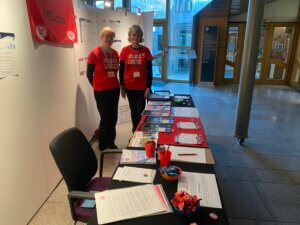Journalist and public health expert Dr. David Tuller has, on Virology Blog, attacked a recent commentary in Nature that included “hard-line opponents” of research into chronic fatigue syndrome with climate change denialists and pro-tobacco campaigners who engage in “endless information requests, complaints to researchers’ universities, online harassment, distortion of scientific findings and even threats of violence.”
Both Dr. Tuller and Professor James Coyne have interpreted this conflation as what Tuller describes as “a reference to the angry response of patients and advocates to the indefensible claims made by the PACE trial.”
The Nature commentary, Dr. Tuller said, showed the extent to which the idea that the PACE authors have been subjected to threats and unfair campaigning “has been accepted as fact by the UK medical and academic establishment.” He described the PACE authors as “wrapping themselves in victimhood,” which had served as “a tactic that has shielded their work from legitimate and much-needed scrutiny.”
Both Dr. Tuller and Professor Coyne note, in their articles, the role of the Science Media Centre in introducing the theme of “harassment” to British media reports on PACE.
Dr. Tuller said, “Patients and advocates have raised… legitimate concerns, in every possible academic, scientific and popular forum. This effort has been framed by the investigators, The Lancet and the Science Media Centre as a vicious and anti-scientific “campaign” against PACE.”
But, he said, “The reality is that patients have been protesting a study they know to be deeply flawed. Sometimes they have protested very, very loudly. That’s what people do when they are desperate for help, and no one is listening. To call it harassment is disgraceful.”

Support Keeping Telehealth – Take Action Today!
Expanded telehealth is set to expire at the end of this year, December 31st! Learn More #MEAction knows losing expanded telehealth will be a problem for many in our community and the wider disability community. Telemedicine increases access to care, improves health equity, and is more affordable than in-person care. We are asking you to




